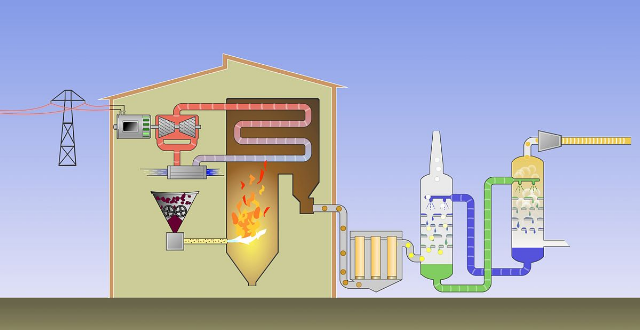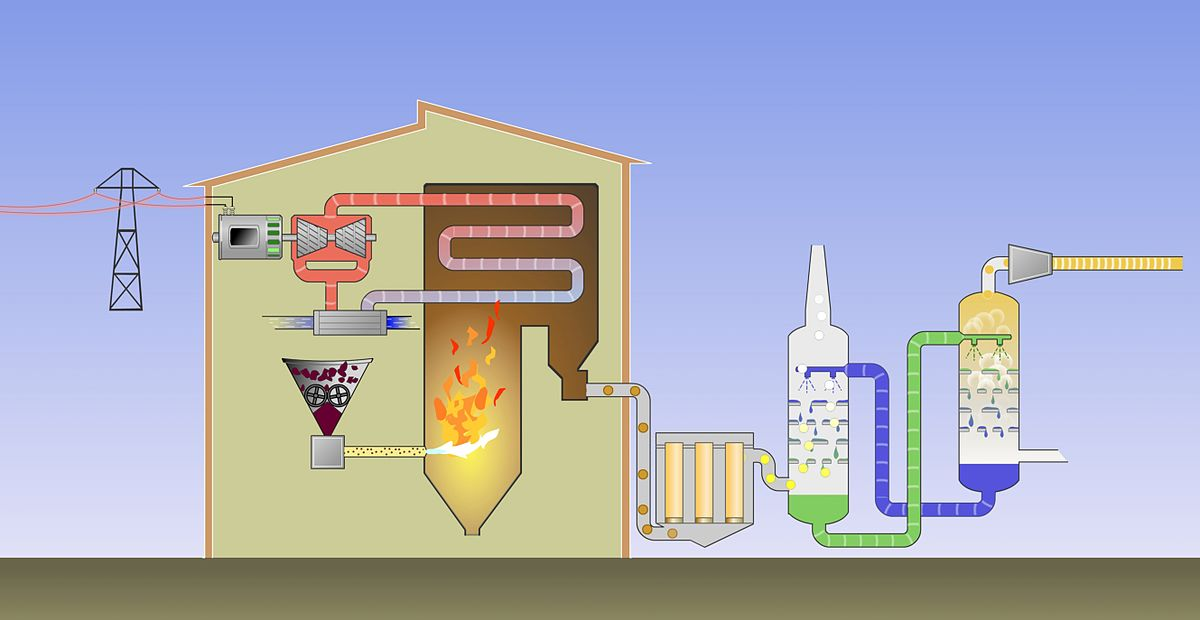

CSIRO
The world isn't coming to an end due to climate change, and policies intended to fight it rob people of choice, often their property, and increase their costs of living. CCS is one of those policies.The “climate hoax” and “Green New Scam,” as President Donald Trump calls them, have spawned countless bad ideas and even worse policies.
In the transglobal elite’s attempt to direct the world’s economy by controlling average people, they have pushed an idiotic and dangerous vision of the nations of the world going net zero. I’m sure it’s purely coincidence that the policies developed to meet net zero just happen to benefit those same elites financially and in terms of political power.
Among the net zero policies pushed by the former Biden-Harris administration were de facto electric vehicle mandates, greenhouse gas restrictions forcing the premature closure of reliable coal-fueled power plants, and restrictions on the types of home appliances that could be sold.
One policy pushed by the net zero cabal that has gotten relatively little attention is mandated Carbon Capture and Storage (CCS). Under this scheme, carbon dioxide emissions are captured and then transported via a spiderweb of pipelines to underground reservoirs to be stored permanently.
Carbon capture has long been used in the oil and gas industry, but the CO2 is not stored. Rather, it is pumped in to marginal or flagging wells where it enhances oil recovery. This is not permanent storage.
The whole motive for CCS, the uneconomic capture for permanent storage rather than use, is to fight climate change and hit net zero. The fossil fuel industry, particularly coal, has embraced it as a lifeline allowing them to continue to operate, a lifeline that happens to come with generous subsidies.
Unsurprisingly, climate grifters have embraced CCS as a way to garner big bucks. They get money from federal subsidies for constructing and operating the network of carbon capture plants and pipelines needed to deliver the captured carbon to supposedly secure underground permanent storage reservoirs. Even bigger bucks come from the generation of “carbon credits,” which they can then sell to high-CO2 emitting industries, allowing them to continue operating while burnishing their green ESG credentials to their shareholders, the public, and various regulatory agencies.
A recent study that I co-authored for the Heartland Institute shows CCS to be unnecessary and dangerous.
CCS is unnecessary because data do not support claims that the world faces a climate crisis or that climate change poses an existential threat to human existence. Despite daily mainstream media lies, the weather is not worsening, food supplies are increasing, and people are living longer, healthier lives, amid modest warming.
The government push for CCS threatens individual property rights because the operators claim the pipelines provide a public good or public benefit, the reduction of CO2, and thus should be allowed to exercise eminent domain to take private lands for pipeline rights-of-way from unwilling sellers.
<img alt captext="CSIRO” class=”post-image-right” src=”https://conservativenewsbriefing.com/wp-content/uploads/2025/02/the-threat-of-carbon-capture.png” width=”450″>However, removing carbon dioxide is not a public good because climate change doesn’t threaten human health, welfare, or the environment. And it isn’t a public use and the pipelines aren’t common carriers. The privately owned and operated pipelines and facilities restrict access to their pipelines and profit handsomely from doing so. This is politically connected companies trying to get state governments to allow them to exercise government power, for private gain at taxpayer and private property owners’ expense.
The push for big CCS is dangerous for a couple of reasons. First, it increases the cost of energy and makes the electric grid less reliable. CCS systems are expensive, and when attached to power plants for large-scale testing, they often fail, resulting in the power plants going offline. Because they are expensive and fail, rather than installing them on power plants to keep them open, utilities often prematurely shutter reliable coal plants, and replace them with intermittent and expensive wind and solar facilities. In either case, costs go up and energy reliability declines. A failing, expensive electric power system endangers peoples’ lives. People who can’t afford backup generators for when the power system fails, or who can’t afford to pay their power bill, are left shivering in the dark or sweltering in the heat, in either case, when this happens, research shows some people die.
The second danger comes from the transportation and storage of the CO2. While CO2 concentrations at present or reasonably expected levels pose no danger to humans, and the evidence suggests its actually benefitting plant life, there can be too much of a good thing, and highly concentrated release of CO2 can and has killed in the past.
For instance, in 1986, a lake in Cameroon released a massive amount of carbon dioxide that had formed from volcanic activity. The release killed nearly 1,800 people, 3,500 livestock, and countless birds and insects. A CCS project in Algeria — which cost approximately $2.7 billion to build in 2004 — had to be shut down in 2011 due to concerns about leakage.
The world isn’t coming to an end due to climate change, and policies intended to fight it rob people of choice, often their property, and increase their costs of living. CCS is one of those policies. Trump should ensure that CCS receives no more federal subsidies, that policies don’t encourage or endorse more carbon trading schemes, and that the federal government no longer limits CO2 from power plants, incentivizing CCS as a way to keep reliable power systems and large factories online.
Withdrawing the EPA’s endangerment finding, which allows the government to limit CO2 providing teeth to the net zero scheme, would be a big step towards that goal.
H. Sterling Burnett, Ph.D., ([email protected]) is the Director of the Arthur B. Robinson Center on Climate and Environmental Policy at The Heartland Institute, a non-partisan, non-profit research organization based in Arlington Heights, Illinois.
Image: CSIRO






